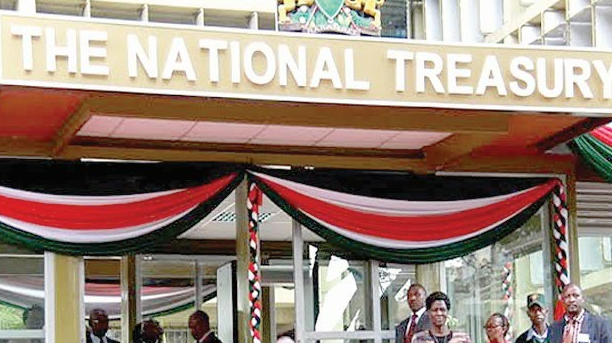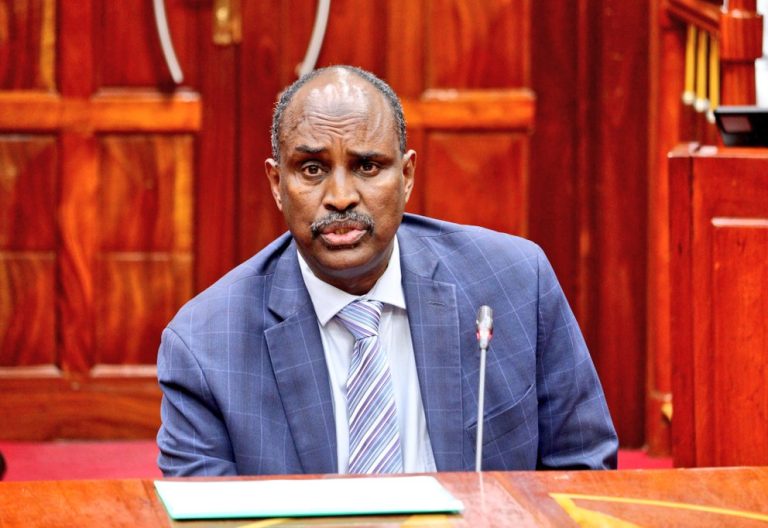MPs fault Treasury over funds delay

A report by a parliamentary watchdog committee has cited contractor non-performance, delayed Exchequer releases, budget cuts and inadequate project management as factors plaguing infrastructure projects in the country.
These factors, the report by the Public Accounts Committee (PAC), says has led to stagnation of projects and accumulation of significant pending bills amounting to billions of shillings owed to various contractors and suppliers by the national government.
The report says during the Financial Year 2020/2021, Ministries, Departments, and Agencies (MDAs) faced budgetary under-performance primarily due to delayed exchequer releases, supplementary budget cuts, or the inability to collect Appropriation-in-Aid. “This invariably led to under-performance of programme objectives and lack of service provision to the public,” said committee chairman John Mbadi.
“On budget cuts, this House stands indicted because we allow too many supplementary budgets, which distort and disrupt the budget implementation process hence resulting in audit queries,” he added.
Notably, as of December 31, 2023, the State Department for Roads had pending bills totalling Sh162 billion, despite certified works amounting to Sh650 billion.
Mbadi expressed concern that with the ballooning pending bills owed to contractors and suppliers by the State department of roads, it will take up to a minimum of four to five years to settle the debt as the annual allocation for the state department is roughly Sh40 billion to Sh50 billion.
Pending bills
He urged the political class to stop politicking and acknowledge the country’s ballooning pending bills and take radical steps to address the situation.
Mbadi urged a halt to new road construction projects, emphasising the need to complete ongoing projects to maximise the value of the funds invested. “We should stop any new constructions of roads and continue to complete ongoing roads so that there would be value for the money spent and pumped into those roads. It is about time this House bit the bullet, I have said it before and I say it again: Let us take radical steps,” he held.
Despite ongoing efforts to compile a list of stalled projects, Mbadi disclosed that his committee would provide information on the interest charged on delayed payments and incomplete projects in the final report.
The committee recommended that the National Treasury only approve projects with guaranteed funding and completion within the medium-term economic framework.
Financial capacity
Mbadi emphasised that no new projects should commence until existing ones are completed or fully funded. “Accounting officers are further warned of personal responsibility should contractors fail to perform, considering evaluation of technical and financial capacity of bidders is mandated under the procurement law,” he said.
He, however, regretted that despite the procurement process requiring that bidders are evaluated on the basis of technical and financial capacity, you will still find contractors who are unable to discharge and complete projects, either for lack of technical capacity or financial inability to finance implementation or execution of the contract. “Failure to enforce and/or recall performance guarantees will also be personally remedied by accounting officers,” Mbadi held.
The committee also urged the National Treasury and the National Assembly to make realistic revenue projections and achievable expenditure estimates, starting with the 2024/2025 budget estimates.
Mbadi emphasised the need to avoid over-budgeting, emphasising that revenue projections should align with actual possibilities. “The reality is that we are over-budgeting as a country. We are budgeting for money that is on paper and that cannot be realised. We need to be realistic about our projections. Our Parliamentary Budget Office has always warned us every financial year that the revenue projections from the National Treasury are unrealistic. However, we continue and go ahead to approve them.
The Committee has also recommended that the National Treasury should only rationalise budgets that have not been committed.
According to Mbadi, when doing supplementary budgets, money that has not been committed rationalised but discouraged National Treasury and Parliament not go to departments and start slashing their budgets in the middle of the year or towards the close of a financial year.








